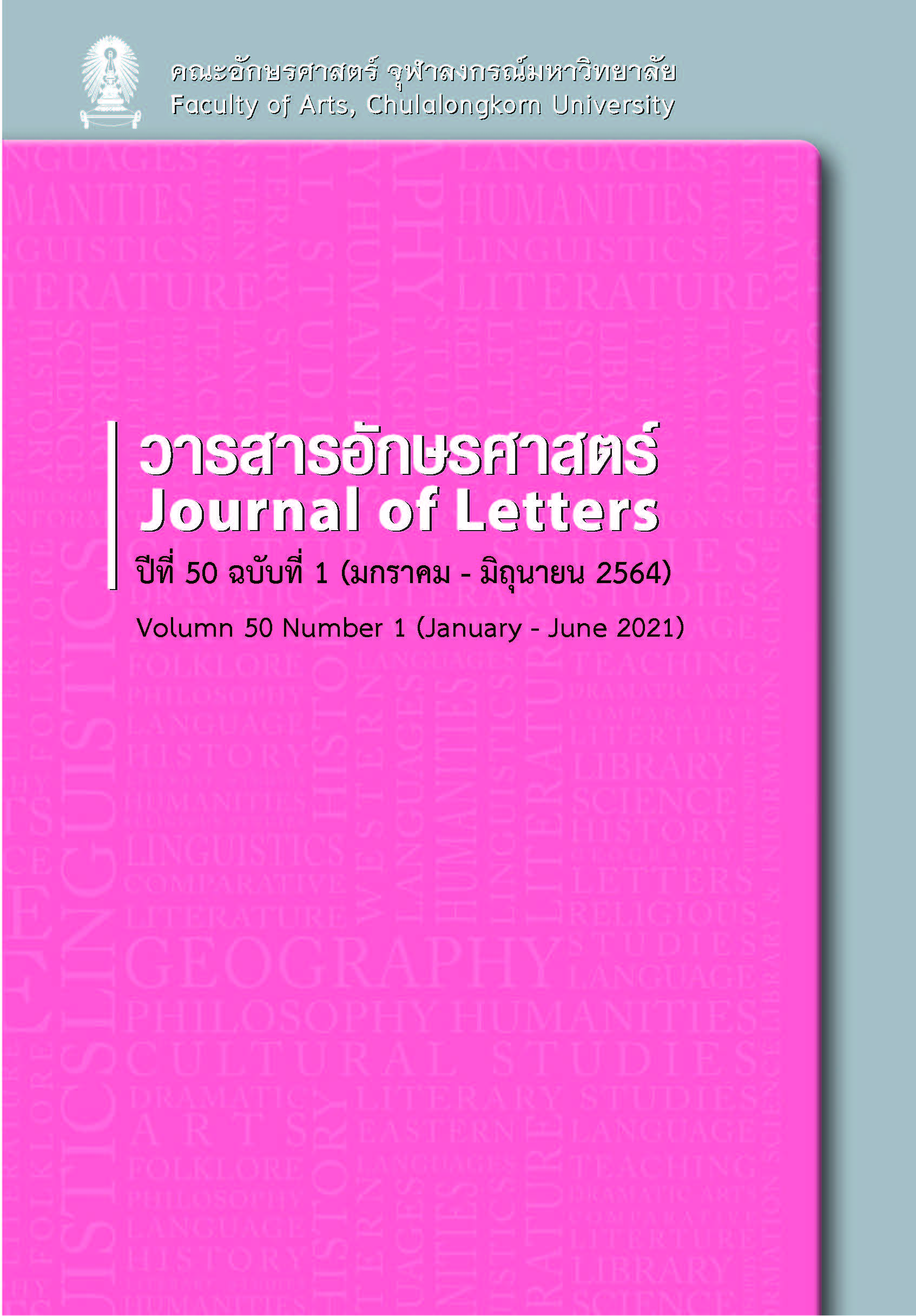Negotiating with Anthropocentrism
A Case Study of The Travelling Cat Chronicles
Keywords:
Anthropocentrism, Animal Studies, Human-Animal Boundary, Human-Animal Relations, Companion SpeciesAbstract
Anthropocentrism is a concept in that humans use their own criteria to judge other animals’ values and give them meaning. This concept appears in many theories and philosophies that try to formulate a clear distinction between humans and other animals. However, presently, this human-animal distinction is under question, for there are many arguments asserting that humanity cannot clearly distinguish itself from other animals. Recognizing this, animal studies attempts to destabilize the boundaries between humans and animals. Although the procedures of this field of study have been presented by many critics, there is one core procedure which focuses on the human-animal relationship before expanding its scope to how humans press other animals. Furthermore, animal studies needs to pay attention to how animals negotiate with humans. This article uses The Travelling Cat Chronicles as its case study. The result is that although humans devalue other animals by giving them meaning related to what they want, other animals negotiate with it by rejecting that meaning or presenting their correlation parts with human. Nonetheless, the study also found that anthropomorphism is a pitfall of this novel, trapped them in anthropocentrism.
References
ภาษาไทย
Ekkachai Eutanpisit เอกชัย เอื้อธารพิสิฐ. 2002. “Suansad: Mayakhati wa duay thammachat lae sud pa” สวนสัตว์: มายาคติว่าด้วยธรรมชาติและสัตว์ป่า. [Zoo: Myth of Nature and Wildlife]. Master’s thesis, Thammasat University.
Suradech Chotiudompan สุรเดช โชติอุดมพันธ์. 2017. Sadsuksa: Su lok lang pab tan สัตว์ศึกษา: สู่โลกหลังภาพแทน [Animal Studies: To the World after the Representation]. In Singsarasad: manudsaya widdhaya wa duay sad lae sad suksa สิงสาราสัตว์: มานุษยวิทยาว่าด้วยสัตว์และสัตว์ศึกษา [Animals: The Anthropology about Animals and Animal Studies], ed. Suddan Wisuddhiluk สุดแดน วิสุทธิลักษณ์, 203-233. Bangkok: Kob Fai Publishing.
Thanya Sangkhaphanthanon ธัญญา สังขพันธานนท์. 2017. Chai piang deratchan: Sudsuksa nai mummong kong kan wijarn cheung nived ใช่เพียงเดรัจฉาน: สัตว์ศึกษาในมุมมองของการวิจารณ์เชิงนิเวศน์ [Not only the Beasts: Animal Studies in the Perspective of Ecocriticism]. In Tridsadee kab kan wichan silapa: Tassana kong nak wichakarn Thai ทฤษฎีกับการวิจารณ์ศิลปะ ทัศนะของนักวิชาการไทย [Theory and Arts Criticism in Thai Academicians’ Perspective, ed. Runruthai Satchapan, 328-400. Bangkok: Nakorn Publishing.
ภาษาต่างประเทศ
Arikawa, Hiro. 2018. The Travelling Cat Chronicles (Philip Gabriel, Trans.). New York: Berkley.
Calarco, Matthew R. 2021. Animal Studies: The Key Concepts. Abingdon, Oxon: Routledge. Kindle.
Derrida, Jacques. 2002. The Animal That Therefore I Am (More to Follow) (David Wills, Trans.). Critical Inquiry 28(2): 369-418. http://www.jstor.org/stable/1344276
Gordon, Joan. 2009. Animal Studies. In The Routledge Companion to Science Fiction, Mark Bould, Andrew M. Butler, Adam Roberts, and Sherryl Vint, eds., 331-339. London: Routledge.
Haraway, Donna J. 2003. The Companion Species Manifesto: Dogs, People, and Significant Otherness. Chicago: Prickly Paradigm Press.
Haraway, Donna J. 2008. When Species Meet. Minneapolis: University of Minnesota.
McDonell, Jennifer. 2013. Literary Studies, the Animal Turn, and the Academy. Social Alternatives 32(4):
-14. https://search.informit.com.au/documentSummary;dn=115441073550414;res=IELLCC
Probyn-Rapsey, Fiona. 2018. Anthropocentrism. In Critical Terms for Animal Studies, ed. Lori Gruen, 47-63. Chicago: The University of Chicago Press.
Ryan, Derek. 2015. Animal Theory: A Critical Introduction. Edinburgh: Edinburgh University Press.
Singer, Peter. 1990. Animal Liberation (2nd ed.). New York: Avon Books.
Stone, Ken. 2018. Reading the Hebrew Bible with Animal Studies. Stanford, California: Stanford University Press.
Downloads
Published
How to Cite
Issue
Section
License
Copyright and plagiarism
Authors are responsible for obtaining permission to use copyrighted materials from copyright owners. Authors are responsible for observing requisite copyright law when quoting or reproducing copyrighted materials. Quotations and reproductions of content from other published sources must be accompanied by a reference and all sources should be clearly listed in the references section. Quotations and reproductions of content from external sources without due attribution could be considered a severe infringement of academic conduct and may constitute a legal offence under the Copyright Act of B.E. 2537. Any legal ramifications arising from the infringement of copyright regulations would be the sole responsibility of the author(s).



